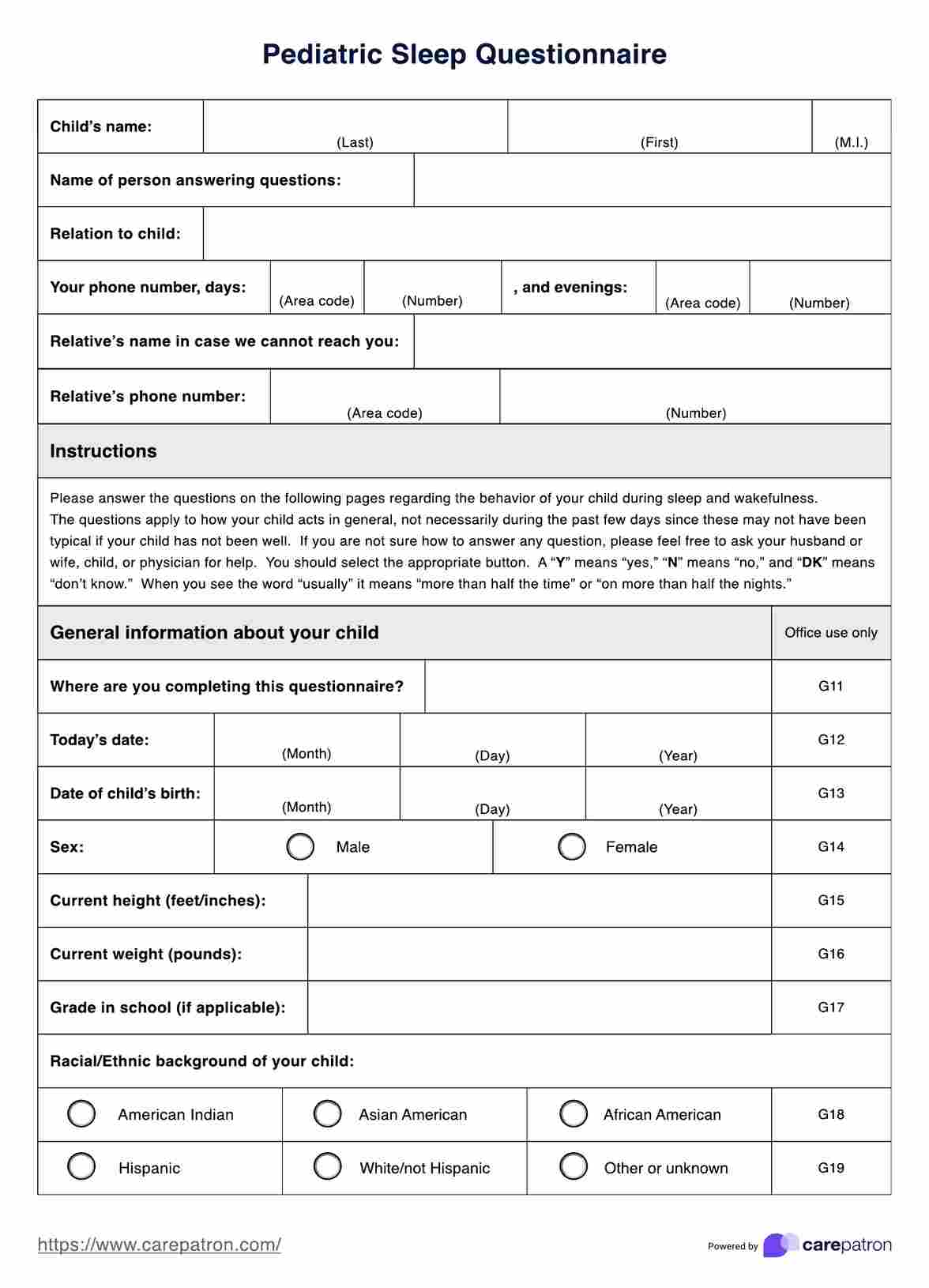The Pediatric Sleep Questionnaire is a tool used to assess various aspects of sleep health in children, including snoring, daytime sleepiness, and sleep-disordered breathing.

Pediatric Sleep Questionnaire
Carepatron offers a free PDF download of a Pediatric Sleep Questionnaire example. Learn more about pediatric sleep patterns and behaviors through this guide.
Pediatric Sleep Questionnaire Template
Commonly asked questions
To score the Pediatric Sleep Questionnaire, sum the responses for each domain and calculate the mean score. A score exceeding 0.33 in any domain indicates a high risk for pediatric sleep-related breathing disorders.
Yes, the PSQ is reliable and valid. The PSQ exhibits robust reliability and validity across multiple measurements, including Cronbach's alpha coefficients assigned to individual scales. These coefficients, ranging between 0.66 and 0.89, signify a notable level of internal coherence among the questionnaire components, affirming its capacity to gauge the desired parameters effectively.
EHR and practice management software
Get started for free
*No credit card required
Free
$0/usd
Unlimited clients
Telehealth
1GB of storage
Client portal text
Automated billing and online payments











